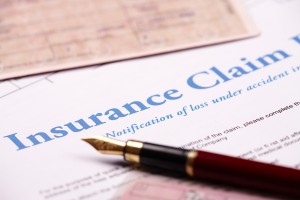If you ever experience damage or loss in your home, you will probably first thank your lucky stars you have homeowners insurance coverage. Then you will likely file a claim with your homeowner’s insurance company, thinking you’ll be able to simply cash the check to get started on your repairs. You realize when the insurance company pays your claim the check is payable to both you and the mortgage company. Now what?
Your Home Is Collateral
The reason the check has two payees is because your mortgage company has a security interest in the house. When it comes to homeowners insurance contracts, loss payees are the parties who receive payment when you have a covered loss. When you purchase a home with a mortgage loan, both you and the lender are considered loss payees. Having a check payable to you and the mortgage company means the lender can be sure the money is used to make the necessary repairs. This allows the lender to protect its interest because a major loss would decrease the value of your home, which is collateral.
Using the Funds
Most of the time, you, as the insured, will receive the check; however, you must then sign it and send it to your mortgage company. The mortgage company will hold the money in escrow and pay you as needed when you make home repairs. In some cases, with small claims or if the loss is solely to your personal property, the lender will simply endorse the check for you to cash or deposit. Also, if you have already completed all the necessary repairs to your home and paid out of pocket, the lender will endorse the check after confirming the repairs are finished.
When You Have Personal Property and Home Loss
On occasions when you have experienced damage to both your personal property and your home, you can also request your insurance company send two checks, one for your home and one for your personal property. If you only receive a single check for both losses, the mortgage company will often first send you the amount to cover your personal property. The lender has no security interest in your personal items, such as furniture and clothing.
Do Not Sign
You should not sign a check from your insurance company if it states “full and final settlement.” This statement releases the company from liability for any more payouts regarding your claim. If you find additional damages, the insurance company will not send you any more money. Should you be offered a “release” form, you should not sign it either. This form is the same as the “full and final settlement” statement and absolves the insurance company of future liability involving your claim. If you need a homeowner’s insurance quote, contact us. Our Dallas, TX, agents can help you determine your homeowners insurance coverage needs.

